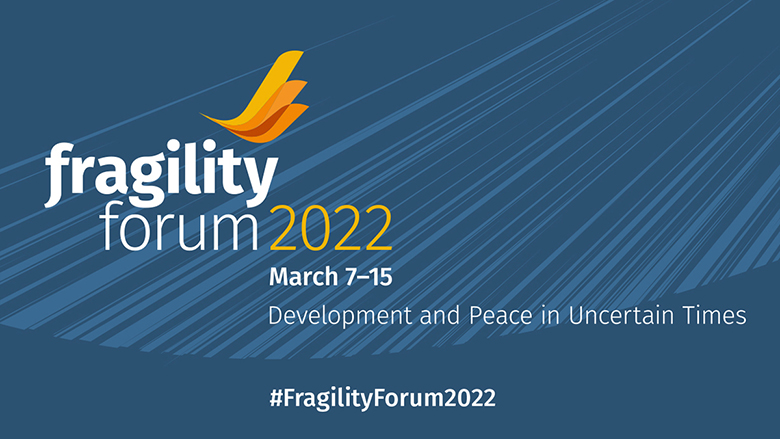The Fragility Forum is a biennial event that brings together policymakers and practitioners from humanitarian, development, peace and security communities; public and private sector; academia; and civil society. The objective is to exchange innovative ideas and knowledge to improve development approaches in fragile, conflict and violence-affected (FCV) settings to foster peace and stability.
A Changing Global Landscape
The global response to fragility, conflict and violence is constantly evolving to adapt to the ongoing changes in the international context. In recent years, new and intensifying crises have posed new challenges:
- The COVID-19 pandemic has led to a loss of life, health and a socioeconomic crisis truly unprecedented in modern history. It has widened inequalities and exposed structural vulnerabilities not just in already fragile contexts, but also in places not previously considered to be fragile. These trends are likely to intensify and to compromise even modest progress on the SDGs for both low- and middle-income countries affected by fragility and conflict.
- Climate change is most intensely affecting the poorest and most vulnerable communities, especially in fragile and conflict-affected settings. It is pushing more people into extreme poverty, forcing displacement, increasing food insecurity, and exacerbating existing drivers of conflict, and violence in fragile settings.
- After decades of steady decline, global extreme poverty rose in 2020 for the first time in over 20 years as the disruption of the COVID-19 pandemic compounded the forces of conflict and climate change, which were already slowing poverty reduction progress. Around 100 million more people are living in extreme poverty, of which about 20 million are in fragile and conflict-affected situations.
These trends are threatening to reverse decades of development gains in many countries: by 2022, GDP in countries affected by FCV is expected to be 8.3% below pre-pandemic projections.
Reflecting on the Evolution of Response to FCV
Ten years ago, the seminal 2011 World Development Report (WDR) on Conflict, Security and Development furthered our understanding of key factors of peace and stability. The central message of the report was that strengthening capable, accountable, and legitimate institutions and governance to provide citizen security, justice, and jobs was crucial to breaking cycles of violence. The WDR 2011 also advocated for country leadership and an international system fit to address 21st-century risks: a system that is inclusive, responsive and that promotes active collaboration across humanitarian, development, peace and security actors. These concepts were also picked up later by the joint UN-WBG Pathways for Peace report and the WBG Fragility, Conflict, and Violence Strategy.
Fragility Forum 2022 Focus
As complexity and uncertainty become the new normal, the Fragility Forum 2022 will explore how the international community can best support countries affected by fragility, conflict and violence in a dramatically changing global landscape. It will revisit some of the key findings of the WDR 2011, look into the evolution of the global response to FCV since then, and consider how to adapt it to new, dynamic contexts.
Please visit this page for updates.
